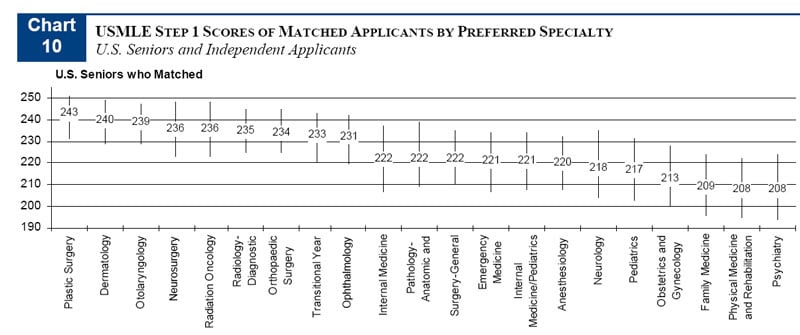btw the tiny number of ophtho spots is due to the fact that you were looking at the list of PGY-1 ophtho positions. I didn't know there were any such programs in the country; evidently there are one or two. If you look at the PGY-2 positions, you'll see the normal numbers. Ophthalmology is one of those fields that requires a year of internship in either surgery, medicine, or a "transitional year" before you can start doing eyes.
And there is an enormous amount of self-selection. First off, your home department has to support your application. If you've barely squeaked through medical school, you can't expect your home department to put you out there in the match. They don't want you to reflect poorly on them, and of course they're worried that you might not match. Every burgeoning new MS4 has a conversation with the clerkship director/ program director / whomever is so designated so that they can run through your application and give you a candid assessment of your 'matchability.'
So even though 300-odd people actually put themselves through the derm match and ranked programs and submitted a list, there were probably 3-4 times that many who were interested in the field but knew they didn't have a shot.
But seriously, don't stress about this. You honestly can't know what specialty is right for you until you go through third year. Shadowing, scrubbing in on cases, what have you is no kind of proxy for getting in, doing the daily work, and seeing how it strikes you.

